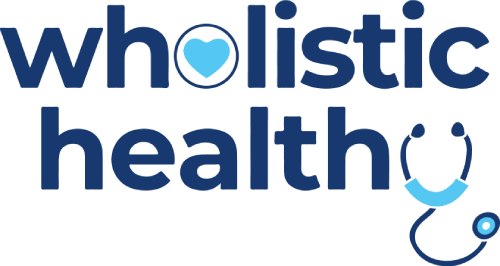If you’re looking to lose weight, discussing your goals and concerns with your doctor is a vital step towards success. Your doctor can provide valuable guidance and support to help you navigate your weight loss journey. In this article, we’ll explore some tips for effectively communicating with your doctor about weight loss.
Understanding the Importance of Discussing Weight Loss
The Role of Weight in Overall Health
Carrying excess weight can increase your risk of various health conditions, including heart disease, diabetes, and joint problems. By shedding those extra pounds, you can improve not only your physical well-being but also your overall quality of life.
Embarking on a weight loss journey is not just a personal decision but a medical one as well. Seeking guidance from healthcare professionals, especially your doctor, can significantly impact the success of your weight loss efforts.
Your doctor plays a crucial role in your weight loss journey. They can assess your current health status, identify any underlying medical conditions that may affect your weight loss efforts, and provide personalized advice based on your individual needs.
Why Your Doctor Should Be Involved
Your doctor plays a crucial role in your weight loss journey. They can assess your current health status, identify any underlying medical conditions that may affect your weight loss efforts, and provide personalized advice based on your individual needs.
Preparing for Your Doctor’s Appointment
Setting Realistic Weight Loss Goals
It’s essential to set realistic weight loss goals that are both achievable and sustainable. By discussing your goals with your doctor, they can help you create a plan that is safe and effective. Your doctor can provide guidance on healthy weight ranges based on factors such as your age, height, and medical history.
Moreover, establishing sustainable lifestyle changes, such as adopting a balanced diet and incorporating regular physical activity, is crucial for long-term weight management. Your doctor can offer tailored recommendations to support your weight loss journey and improve your overall well-being.
Questions to Ask Your Doctor
Prepare a list of questions to ask your doctor during the appointment. This will help you gather all the necessary information and address any concerns you may have.
- What is a healthy weight range for me?
- What dietary changes do you recommend?
- Are there any medications or supplements I should consider?
- How often should I exercise, and what types of activities are best?
Additionally, don’t hesitate to inquire about the potential risks and benefits of different weight loss strategies, as well as the importance of monitoring your progress over time. Open communication with your doctor can enhance the quality of care you receive and empower you to make informed decisions about your health.
Communicating Effectively with Your Doctor
How to Express Your Concerns Clearly
When discussing your concerns, be honest and specific about what troubles you. Use clear and concise language to ensure that your doctor fully understands your needs and expectations. Remember, effective communication is a two-way street, so don’t hesitate to ask questions or seek further clarification if needed.
Understanding Medical Terminology
Medical terminology can sometimes be overwhelming. If you come across any unfamiliar terms during your conversation with your doctor, don’t hesitate to ask for clarification. Understanding the language used will help you make informed decisions about your weight loss journey. Your doctor is there to explain any medical jargon in a way that is easy for you to understand, so don’t be afraid to seek clarification.
Furthermore, educating yourself about common medical terms related to weight loss can empower you to take an active role in your healthcare. By familiarizing yourself with terminology such as BMI (Body Mass Index), metabolism, and macronutrients, you can have more meaningful discussions with your doctor about your weight loss goals and progress.
Navigating the Weight Loss Conversation
Dealing with Potential Sensitivity
Discussions about weight can sometimes be sensitive, so approach the conversation with empathy and respect. Remember that your doctor’s intention is to help and support you, so keep an open mind and be receptive to their advice.
It’s also crucial to recognize that weight is just one aspect of your overall health and well-being. Your worth is not defined by a number on a scale, and your doctor is there to assist you in achieving a balanced and healthy lifestyle. By focusing on holistic health and wellness, you can work towards sustainable and long-term improvements that go beyond just numbers.
Advocating for Your Health Needs
Don’t be afraid to actively participate in the conversation and advocate for your health needs. Remember, you are an active participant in your own healthcare, and your doctor is there to guide and support you.
Your voice matters in the discussion of your health goals and treatment plans. Feel empowered to ask questions, express your concerns, and collaborate with your healthcare team to create a personalized approach that aligns with your values and aspirations. By taking an active role in advocating for your health needs, you can work towards a positive and fulfilling relationship with your doctor based on mutual respect and shared decision-making.
Following Up After the Appointment
Implementing Your Doctor’s Advice
Take the recommendations provided by your doctor and incorporate them into your daily routine. Whether it’s making dietary changes, increasing physical activity, or seeking additional support, following their advice will help you achieve your weight loss goals.
Remember, small changes can lead to significant results over time. Don’t underestimate the power of consistent, incremental progress in achieving your weight management objectives. Celebrate each milestone along the way, no matter how small, as it signifies your dedication and commitment to your health.
Scheduling Regular Check-ups for Weight Management
Regular check-ups are essential for monitoring your progress, addressing any challenges, and obtaining ongoing guidance from your doctor. Make sure to schedule follow-up appointments to ensure that you stay on track toward achieving your weight loss goals.
During these check-ups, take the opportunity to discuss any concerns, setbacks, or achievements you’ve experienced since your last visit. Your doctor is there to support and guide you through your weight management journey, so don’t hesitate to share your thoughts and feelings openly. Together, you can work towards overcoming obstacles and reaching new milestones in your pursuit of a healthier lifestyle.
In Conclusion
By effectively communicating with your doctor about weight loss, you can establish a collaborative relationship that significantly enhances your chances of success. Remember to be open, honest, and proactive throughout your weight loss journey, and your doctor will provide the support you need to achieve your goals.
To learn about the wellness options we offer at Wholistic Health, contact us today to schedule a consultation.

